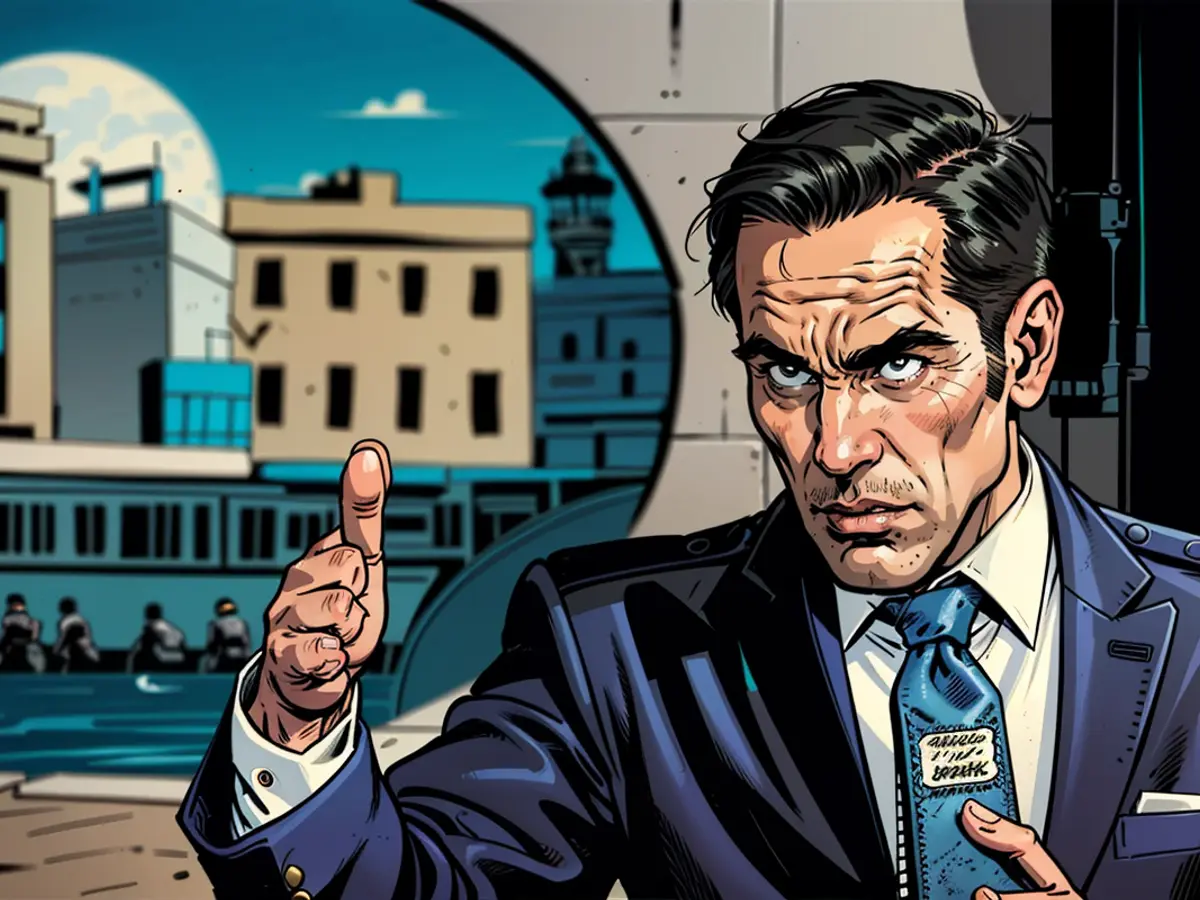- US: War between Israel and Hezbollah is avoidable
While diplomatic efforts to de-escalate the conflict between Israel and Lebanese Hezbollah are in full swing, discussions on a ceasefire in the Gaza Strip are being hindered by mutual accusations of blockade violations from the warring parties. "We believe there is still time and space for a diplomatic solution," said John Kirby, communications director of the U.S. National Security Council, regarding the tense situation.
After the devastating rocket attack on the Israeli-occupied Golan Heights that killed 12 children and teenagers, fears of a larger war are growing. Hezbollah, which claims to want to force Israel to a ceasefire agreement in the Gaza Strip out of solidarity with the Islamic Hamas, is on high alert. If there is an attack, they will retaliate, sources within Hezbollah said. According to Israeli media, Israel's reaction is likely to be significant but limited.
Indications of accidental rocket strike
The U.S. government has been in intensive talks with various actors over the weekend, Kirby said. "Based on the conversations we've had, we don't believe this has to lead to escalation or a broader war." Such a scenario is preventable.
The Israeli government holds the Iran-linked Shia militia Hezbollah responsible for the rocket attack on the Golan and is preparing a retaliatory strike. The U.S. government also attributed the attack to Hezbollah.
"The attack was carried out by Lebanese Hezbollah, although they deny it," said Kirby. The rocket was fired from an area controlled by the militia. He stressed that Israel has the right to defend itself and that the country will decide how to react. "But we don't believe that this attack over the weekend - as terrible as it was - has to lead to escalation or a greater risk of war." Corresponding predictions are exaggerated.
There are indications that Hezbollah may have accidentally hit the predominantly Arabic-speaking Druze town of Majdal Shams. "The assumption of a misdirected rocket is much more plausible than Hezbollah deciding to attack a soccer field," said Eli Hanna, a Lebanese former general, to the newspaper "L'Orient-Le Jour". The militia also claimed responsibility for several other attacks against Israeli military targets in the vicinity on the same day.
Netanyahu: Our response will be hard
Israel's security cabinet empowered Prime Minister Benjamin Netanjahu and Defense Minister Joav Galant to decide on further action against Hezbollah late Sunday evening. Netanjahu said during a visit to the site where the rocket hit that Israel cannot return to normal after the attack. "Our response will come, and it will be hard," said the 74-year-old.
At the same time, both sides appear not to be interested in significantly expanding their hard-fought battles, which have been ongoing for almost ten months. On the Lebanese side, more than 100 civilians and 360 Hezbollah members have been killed, while on the Israeli side, about 20 soldiers and more than 20 civilians have died. 150,000 people on both sides of the border had to leave their homes. The U.S. news portal "Axios" cited Israeli officials saying that Israel's security cabinet and the military are advocating for "a much stronger response to Hezbollah than anything seen before," but not a large war.
The U.S. government has warned Israel that shelling Hezbollah in the Lebanese capital of Beirut could likely spiral out of control, according to "Axios," citing an Israeli and a U.S. official. The Israeli military believes a strong Israeli response would likely lead to multi-day high-intensity fighting that would be difficult to contain, wrote well-connected Israeli journalist Barak Ravid. "It's clear that both sides will take a step further than before, but it's not clear if they can avoid plunging into the abyss," Ravid quoted an Israeli official to "Axios."
Meanwhile, Hamas has rejected Israel's latest proposal for a ceasefire in Gaza and the release of Israeli hostages. Israel's Prime Minister's Office has been deviating from previous positions and those of the mediators with new demands, according to Telegram. "Netanyahu has returned to a strategy of delay, stalling, and evasion in reaching an agreement."
Netanyahu denied making new demands. "Israel has neither changed the draft (for an agreement) nor added any conditions," the Prime Minister's office stated. Instead, it's Hamas' leadership that's preventing an agreement. With Hamas and Israel not negotiating directly, Qatar, Egypt, and the U.S. serve as intermediaries.
Talks have been slow for months, circling around a multi-phase plan by U.S. President Joe Biden that aims for a permanent ceasefire and the exchange of hostages for Palestinian prisoners in Israeli jails.
Recently, Netanyahu formulated additional conditions, incorporated into Israel's proposal, aiming to maintain Israeli control over strategic zones in the Gaza Strip after a ceasefire. Netanyahu's office stated that talks on the main issues would continue in the coming days.
"We don't want the war to escalate," said Kirby. Regarding the situation between Israel and the Lebanese Hezbollah militia along their borders, the U.S. National Security Council's communications director added, "We don't want a second front opened up in the north."
The following statements from the U.S. government aim to prevent escalation: The U.S. government has warned Israel that shelling Hezbollah in Beirut could likely spiral out of control. Additionally, Kirby mentioned, "We don't want a second front opened up in the north."








